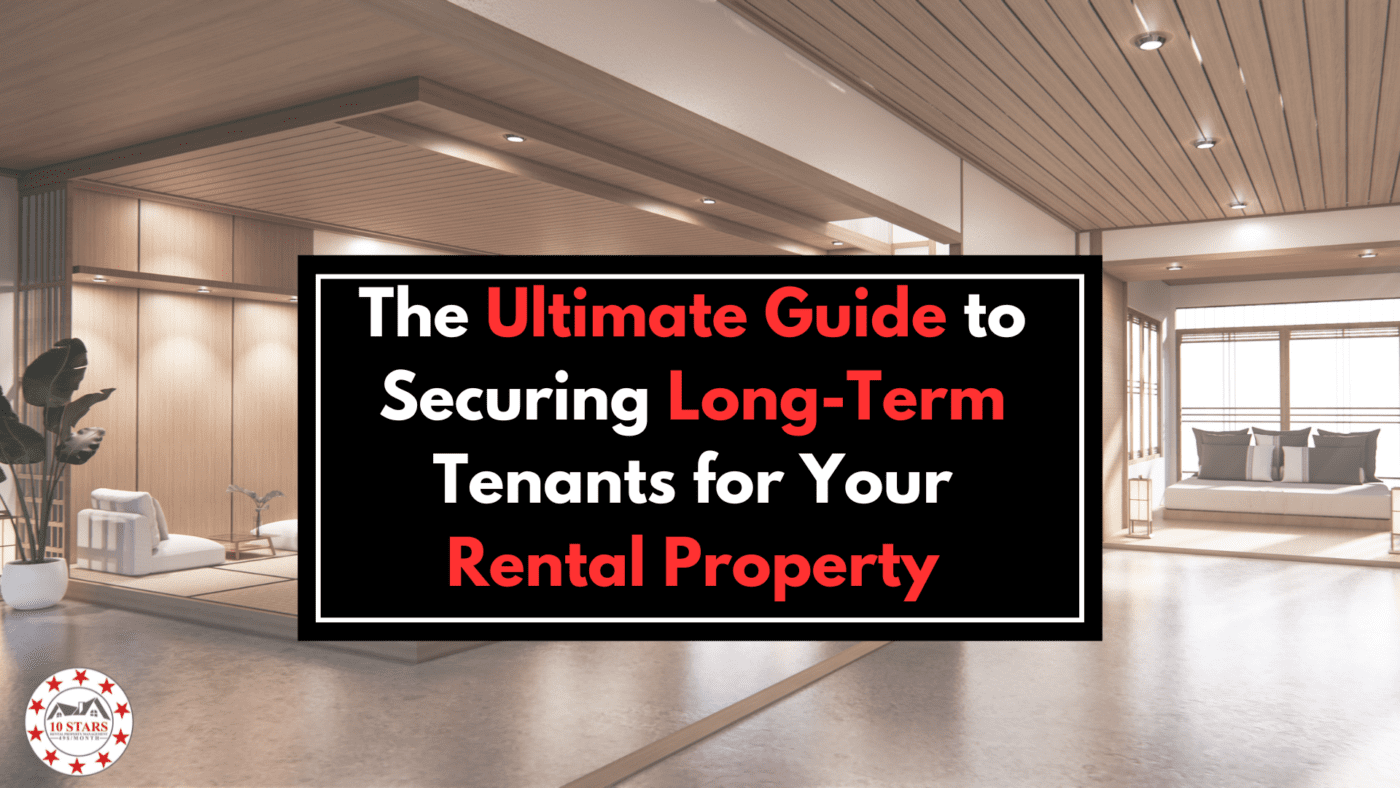Are you a landlord or property owner looking for stability and peace of mind in your rental business? If so, attracting and retaining long-term tenants should be a top priority. Long-term tenants not only provide a steady stream of income but also reduce turnover costs and minimize the time and effort spent on marketing and screening new tenants.
In this comprehensive guide, we will explore effective strategies and practical tips to help you secure long-term tenants for your rental property. From creating an appealing rental listing to establishing a positive landlord-tenant relationship, we will cover all the essential steps necessary to maintain a successful and profitable rental business.
-
Prepare Your Property for Long-Term Tenants
The first step in attracting long-term tenants is ensuring that your property is well-prepared and appealing. This includes conducting necessary repairs, thorough cleaning, and enhancing the overall aesthetic appeal. Here are some key areas to focus on:
a. Maintenance and Repairs: Address any maintenance issues promptly, such as plumbing leaks, faulty electrical wiring, or broken appliances. Regularly inspect the property to identify potential problems before they escalate.
b. Cleanliness and Presentation: A clean and well-maintained property creates a positive first impression. Consider professional cleaning services and invest in fresh paint, updated flooring, and appealing landscaping.
c. Amenities and Upgrades: Evaluate your property and determine if any upgrades or additional amenities can enhance its appeal. This may include installing energy-efficient appliances, adding storage space, or providing high-speed internet connectivity.
-
Craft an Attractive Rental Listing
A compelling rental listing can significantly impact your ability to attract long-term tenants. When creating your listing, consider the following:
a. Accurate and Detailed Description: Clearly describe your property, highlighting its key features, such as the number of bedrooms and bathrooms, square footage, and any unique selling points. Be honest and transparent about the property’s condition and any potential limitations.
b. High-Quality Photos and Virtual Tours: Visuals play a crucial role in attracting tenants. Capture high-resolution photos that showcase each room and highlight the property’s best attributes. Consider including a virtual tour or video walkthrough to give potential tenants a more immersive experience.
c. Clear Rental Terms and Policies: State the rental price, lease duration, security deposit requirements, and any specific policies, such as pet or smoking restrictions. Providing this information upfront helps filter out potential tenants who may not meet your criteria.
-
Implement Thorough Tenant Screening
To secure long-term tenants, it’s crucial to conduct thorough tenant screening to ensure a good fit for your rental property. Here are some essential screening steps to follow:
a. Application Process: Create a standardized rental application that collects all necessary information, including employment details, rental history, and personal references. Ensure applicants provide consent for credit and background checks.
b. Credit and Background Checks: Obtain written permission from applicants to conduct credit checks to assess their financial stability and responsibility. Additionally, perform background checks to verify their criminal history and rental records.
c. References and Employment Verification: Contact previous landlords and personal references to gain insights into the applicant’s character, reliability, and rental history. Verify employment and income to ensure their ability to meet rental obligations.
-
Foster a Positive Landlord-Tenant Relationship
Building a strong and positive relationship with your tenants is key to securing long-term leases. Here’s how you can foster a harmonious landlord-tenant relationship:
a. Prompt Communication: Respond to tenant inquiries, requests, and maintenance issues in
a timely manner. Open lines of communication through various channels, such as email, phone, or a dedicated online portal, to make it convenient for tenants to reach out to you.
b. Respect and Professionalism: Treat your tenants with respect and professionalism at all times. Address their concerns and resolve any conflicts or issues promptly and fairly. Establish clear boundaries and expectations to maintain a harmonious relationship.
c. Regular Maintenance and Upkeep: Stay proactive with property maintenance and address repair requests promptly. Conduct periodic inspections to ensure everything is in proper working order. Showing your commitment to maintaining the property will demonstrate your dedication to your tenants’ comfort and satisfaction.
d. Rent Increases and Lease Renewals: When it comes to rent increases, be mindful of local rental market trends and consider the impact on your long-term tenants. If feasible, offer lease renewals with reasonable terms and incentives to encourage tenants to stay.
e. Personalize the Experience: Show genuine interest in your tenants by remembering important details about their lives or milestones. Small gestures like birthday cards or holiday greetings can go a long way in building rapport and loyalty.
-
Provide a Safe and Well-Managed Property
Creating a safe and well-managed property is essential for attracting and retaining long-term tenants. Here are some key steps to ensure a secure environment:
a. Adequate Security Measures: Install reliable locks, smoke detectors, and security systems to enhance tenant safety. Consider well-lit common areas and, if applicable, a secure entry system.
b. Regular Property Inspections: Conduct regular inspections to identify potential safety hazards or maintenance issues. Address them promptly to maintain a safe and comfortable living environment.
c. Promptly Address Security Concerns: Take tenant security concerns seriously and respond promptly. Establish clear procedures for reporting and addressing security issues, ensuring tenants feel heard and supported.
d. Emergency Preparedness: Develop and communicate emergency protocols, such as evacuation procedures or emergency contact information. Provide tenants with necessary resources and information to handle emergencies effectively.
Conclusion
Securing long-term tenants for your rental property requires careful planning, attention to detail, and a commitment to maintaining positive landlord-tenant relationships. By preparing your property, crafting an attractive listing, implementing thorough tenant screening, fostering a positive relationship, and ensuring a safe environment, you increase your chances of attracting and retaining long-term tenants.
Remember, long-term tenants offer stability, minimize turnover costs, and contribute to the overall success and profitability of your rental business. Invest time and effort into creating an appealing rental experience, and you’ll reap the rewards of a thriving and hassle-free rental property.

